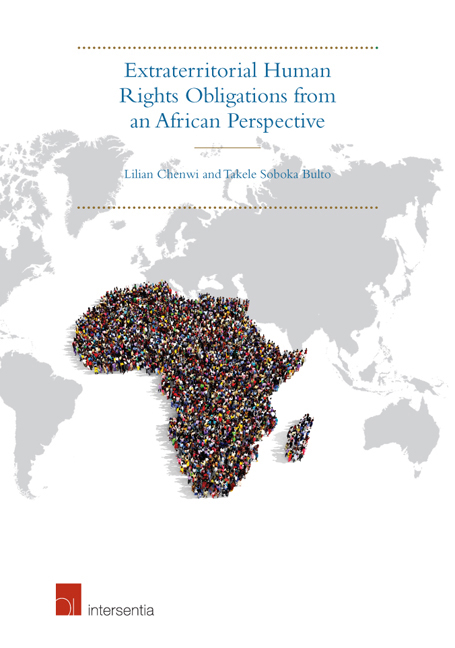Book contents
- Frontmatter
- Dedication
- Foreword
- Preface
- Contents
- List of Cases, Advisory Opinions and Other Decisions
- List of Treaties and Other Instruments
- About the Contributors
- Introduction
- Extraterritoriality in the African Regional Human Rights System from a Comparative Perspective
- Commercialisation of Educational Services and Extraterritorial Human Rights Obligations
- Extraterritorial Human Rights Obligations in the Context of Development Assistance to African States
- The Right to Food Beyond Borders: The Extraterritorial Reach of the Right to Food in Africa
- Extraterritorial Application of the Right to Water under the African System for the Protection of Human Rights
- Tortured Unity: United States–Africa Relations in Extraordinary Renditions and States’ Extraterritorial Obligations
- Indigenous Communities Displaced by Climate Change and Extraterritorial Application of States’ Obligations in Africa
- Land Grabbing, Extraterritorial Obligations and the Failure of Justice in Uganda: The Mubende Case
- Extraterritorial Obligations of Uganda for its Military's Failure to Respect and Protect Civilians in Areas of the Lord's Resistance Army Activity
- Bibliography
- Index
Commercialisation of Educational Services and Extraterritorial Human Rights Obligations
Published online by Cambridge University Press: 21 September 2018
- Frontmatter
- Dedication
- Foreword
- Preface
- Contents
- List of Cases, Advisory Opinions and Other Decisions
- List of Treaties and Other Instruments
- About the Contributors
- Introduction
- Extraterritoriality in the African Regional Human Rights System from a Comparative Perspective
- Commercialisation of Educational Services and Extraterritorial Human Rights Obligations
- Extraterritorial Human Rights Obligations in the Context of Development Assistance to African States
- The Right to Food Beyond Borders: The Extraterritorial Reach of the Right to Food in Africa
- Extraterritorial Application of the Right to Water under the African System for the Protection of Human Rights
- Tortured Unity: United States–Africa Relations in Extraordinary Renditions and States’ Extraterritorial Obligations
- Indigenous Communities Displaced by Climate Change and Extraterritorial Application of States’ Obligations in Africa
- Land Grabbing, Extraterritorial Obligations and the Failure of Justice in Uganda: The Mubende Case
- Extraterritorial Obligations of Uganda for its Military's Failure to Respect and Protect Civilians in Areas of the Lord's Resistance Army Activity
- Bibliography
- Index
Summary
INTRODUCTION
In many countries, the state is the main provider of educational services. The state is the main actor in organising the education system; it determines the curriculum, builds schools, provides teaching materials and pays teacher salaries. This applies to primary education, secondary education and higher education and also to vocational education. Children have a human right to education. The state has a duty to make education available and accessible. As a counterpart, most states have laid down in their domestic legislation an obligation for children up to the age of 16 or 18 to attend school. This system of compulsory education is fundamental for guaranteeing that children are able to benefit fully from learning and preparing for adult and professional life. The right or entitlement to education is part of international human rights law.
The assumption has always been that the state is the key duty-holder for making the right to education a reality. Non-public, private education has always been a possibility for religious or other groups to establish their own educational institutions according to their own beliefs or educational views. This freedom of education is also part of international human rights law. In the world of today, one can witness a new trend, namely the introduction of corporate players on the educational scene.
This chapter discusses the growth of private, non-public education in a number of African countries. It focuses on the initiatives to introduce private, low-fee schooling in primary and secondary education by joint ventures of private groups and companies supported by donor governments and intergovernmental organisations. The chapter discusses as examples developments in Morocco, Ghana, Kenya, Uganda and Liberia. It looks at these developments from the perspective of extraterritorial human rights obligations of states that either provide financial support to such private parties, or are the home state of companies active in providing or supporting educational services abroad.
This contribution departs from the idea that states have extraterritorial human rights obligations for the effects of their own actions and omissions in other countries, and as the home state of companies who, as a result of their activities abroad, affect the economic, social and cultural rights of people living there.
- Type
- Chapter
- Information
- Publisher: IntersentiaPrint publication year: 2018



